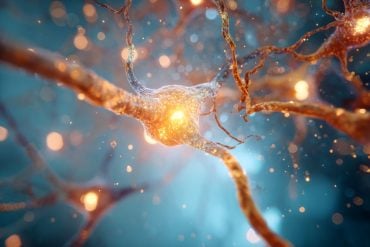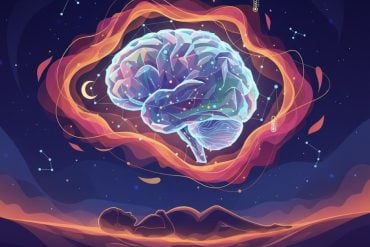Summary: Hope isn’t just about wishful thinking—it’s a unique emotional experience that may be more essential to well-being than happiness or gratitude. A new study shows that hope stands out among positive emotions as the most consistent predictor of a meaningful life.
Researchers analyzed responses from over 2,300 participants across six studies and found that hope alone reliably enhanced people’s sense of life meaning. These findings challenge traditional views of hope as merely goal-oriented and reframe it as a cornerstone of psychological health.
Key Facts:
- Hope vs. Happiness: Hope was more strongly linked to life meaning than happiness, excitement, or gratitude.
- Everyday Power: Small positive moments, future potential, and nurturing acts can all help cultivate hope.
- Life Benefits: A stronger sense of meaning is tied to better health, relationships, income, and life satisfaction.
Source: University of Missouri-Columbia
Hope isn’t just wishful thinking — it’s a powerful emotional force that gives our lives meaning. Now, a new groundbreaking study from the University of Missouri shows it may be even more essential to well-being than happiness or gratitude.
For years, psychology has tied hope to goal-setting and motivation. But a team of researchers led by Megan Edwards and Laura King from Mizzou’s Department of Psychological Sciences is challenging that idea, showing that hope stands apart as one of the strongest positive emotions that directly fosters a sense of meaning.

“Our research shifts the perspective on hope from merely a cognitive process related to goal attainment to recognizing it as a vital emotional experience that enriches life’s meaning,” said Edwards, who earned a doctorate at Mizzou and is now a postdoctoral scholar at Duke University.
“This insight opens new avenues for enhancing psychological well-being.”
Using six studies with more than 2,300 participants from diverse backgrounds, the team analyzed a range of emotions, including amusement, contentment, excitement and happiness. The findings consistently demonstrated that only hope consistently predicted a stronger sense of meaning.
Experiencing meaning in life is a central aspect of psychological functioning, predicting a host of important outcomes, such as happiness, better quality relationships, better physical health and higher income, King, a Curators’ Distinguished Professor of Psychological Sciences, said.
“Experiencing life as meaningful is crucial for just about every good thing you can imagine in a person’s life,” King said.
“This cornerstone of psychological functioning is not a rare experience — it is available to people in their everyday lives and hope is one of the things that make life feel meaningful.”
How to cultivate more hope in daily life
Since finding meaning in life enhances everything from self-care to relationships and daily routines, the researchers suggest simple ways to build hope each day.
One key approach is to pay attention to and appreciate positive moments — even small ones. While we often think about future milestones, simply noticing when things are going well can foster hope.
Another strategy is to seize opportunities even in chaotic times. When life feels uncertain, recognizing and seizing small opportunities can create a sense of forward momentum.
Additionally, it helps to appreciate growth and potential, both in yourself and others. Recognizing ongoing progress can inspire thoughts of a positive future.
Engaging in caring and nurturing activities is another way to cultivate hope. Just as tending to children or planting trees can symbolize future possibilities, investing time in activities that nurture growth can reinforce a hopeful mindset.
And when things feel bleak, it’s important to remember that nothing is permanent. Situations can change — and hope begins with the belief that they will.
What’s next
King believes their findings may only scratch the surface of hope’s full impact.
Future research will explore the power of hope in especially difficult times, Edwards said. The goal is to develop strategies that help people stay hopeful and find meaning, even when facing adversity.
About this psychology research news
Author: Eric Stann
Source: University of Missouri Columbia
Contact: Eric Stann – University of Missouri Columbia
Image: The image is credited to Neuroscience News
Original Research: Closed access.
“Hope as a meaningful emotion: Hope, positive affect, and meaning in life” by Megan Edwards et al. Emotion
Abstract
Hope as a meaningful emotion: Hope, positive affect, and meaning in life
Six studies (combined N = 2,312) examined the emotion of hope as a unique and robust predictor of meaning in life.
In cross-sectional data (Studies 1–2), affectice hope predicted greater meaning, controlling for other positive affect, and agency/pathways, in the majority of White U.S. samples.
Utilizing a daily diary (Study 3), daily hope predicted daily meaning independent of positive emotions, in a Chinese sample.
A five-wave longitudinal design (Study 4) replicated Study 3, demonstrating that hope was the only positive emotion to predict meaning in life in future waves.
Finally, two experiments tested whether hopeful feelings would explain the effects of cheerful (vs. sadness) mood inductions (Study 5) or hopeful (vs. hopeless) mood inductions (Study 6) on meaning in life.
Although in neither study did manipulations directly affect meaning in life, hopeful feelings showed significant indirect effects explaining the condition effects on meaning in life.
The present studies support that feeling hopeful contributes to the sense that life is meaningful, controlling for other positive feelings.






